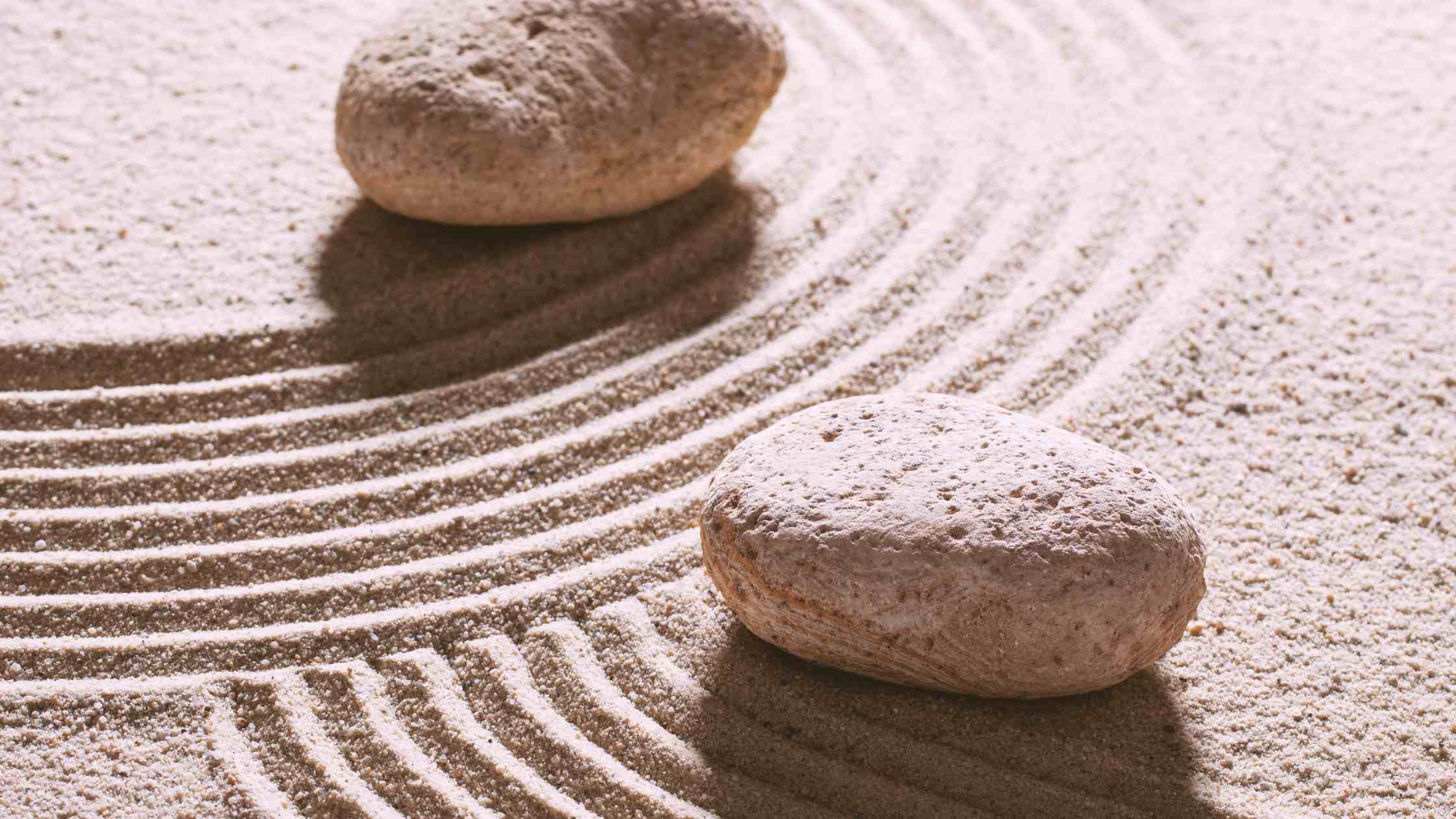I’ve followed Leo Babauta from Zen Habits for a long time now. I feel that we share the same values when it comes to simple life, minimalistic living, healthy eating, mindful work, exercise, disconnection from technology, time in nature, slow life, focus, etc. Back in November I downloaded his book: FocusFree. It’s been sitting on my desktop waiting for me to read it for almost 4 months. I finally cleared my desktop and opened the book. I can’t tell you how much our thinking is alike. And I absolutely love his writing. And since Leo has been generous to make the book uncopyright, I’d love to share a chapter with you here. Consider this a guest blog. One day, Leo and I will get together on some Unhustle projects. One day. You can find the full free book for download at focusmanifesto.com. Now over to Leo Babauta.
“There is more to life than increasing its speed.”
– Gandhi
The world most of us live in is hectic, fast-paced, fractured, hurried.
What’s more, most of us are conditioned to think this is the way life should be.
Life should be lived at break-neck speed, we believe. We risk our lives in cars and we break the speed limit, rushing from one place to another. We do one thing after another, multi-tasking and switching between tasks as fast as we can blink.
All in the name of productivity, of having more, of appearing busy, to ourselves and to others.
But life doesn’t have to be this way. In fact, I’d argue that it’s counterproductive.
If our goal is to create, to produce amazing things, to go for quality over quantity, then rushing is not the most effective way to work. Slowing down and focusing is always more effective.
Rushing produces errors. It’s distracting to flit from one thing to the next, with our attention never on one thing long enough to give it any thought or create anything of worth. Hurrying produces too much noise to be able to find the quiet the mind needs for true creativity and profound thinking.
So yes, moving quickly will get more done. But it won’t get the right things done.
Benefits of Slowing Down
There are lots of reasons to slow down, but I’ll list just a few to give you an idea of why it’s important:
1. Better focus. When you slow down, you can focus better. It’s hard to focus if you’re moving too fast.
2. Deeper focus. Rushing produces shallowness, because you never have time to dig beneath the surface. Slow down and dive into deeper waters.
3. Better appreciation. You can really appreciate what you have, what you’re doing, who you’re with, when you take the time to slow down and really pay attention.
4. Enjoyment. When you appreciate things, you enjoy them more. Slowing down allows you to enjoy life to the fullest.
5. Less stress. Rushing produces anxiety and higher stress levels. Slowing down is calmer, relaxing, peaceful.
A Change of Mindset
The most important step is a realization that life is better when you move at a slower, more relaxed pace, instead of hurrying and rushing and trying to cram too much into every day. Instead, get the most out of every moment.
Is a book better if you speed read it, or if you take your time and get lost in it?
Is a song better if you skim through it, or if you take the time to really listen?
Is food better if you cram it down your throat, or if you savor every bite and really appreciate the flavor?
Is your work better if you’re trying to do 10 things at once, or if you really pour yourself into one important task?
Is your time spent with a friend or loved one better if you have a rushed meeting interrupted by your emails and text messages, or if you can relax and really focus on the person?
Life as a whole is better if you go slowly, and take the time to savor it, appreciate every moment. That’s the simplest reason to slow down.
And so, you’ll need to change your mindset (if you’ve been stuck in a rushed mindset until now). To do this, make the simple admission that life is better when savored, that work is better with focus. Then make the commitment to give that a try, to take some of the steps below.
But I Can’t Change!
There will be some among you who will admit that it would be nice to slow down, but you just can’t do it … your job won’t allow it, or you’ll lose income if you don’t do as many projects, or living in the city makes it too difficult to go slowly. It’s a nice ideal if you’re living on a tropical island, or out in the country, or if you have a job that allows control of your schedule … but it’s not realistic for your life.
I say bullshit.
Take responsibility for your life. If your job forces you to rush, take control of it. Make changes in what you do, in how you work. Work with your boss to make changes if necessary. And if really necessary, you can eventually change jobs. You are responsible for your life.
If you live in a city where everyone rushes, realize that you don’t have to be like everyone else. You can be different. You can walk instead of driving in rush hour traffic. You can have fewer meetings. You can work on fewer but more important things. You can be on your iPhone or Blackberry less, and be disconnected sometimes. Your environment doesn’t control your life — you do.
I’m not going to tell you how to take responsibility for your life, but once you make the decision, the how will become apparent over time.
Tips for a Slower-Paced Life
I can’t give you a step-by-step guide to moving slower, but here are some things to consider and perhaps adopt, if they work for your life. Some things might require you to make major changes, but they can be done over time.
1. Do less. Cut back on your projects, on your task list, on how much you try to do each day. Focus not on quantity but quality. Pick 2-3 important things — or even just one important thing — and work on those first. Save smaller, routine tasks for later in the day, but give yourself time to focus.
2. Have fewer meetings. Meetings are usually a big waste of time. And they eat into your day, forcing you to squeeze the things you really need to do into small windows, and making you rush. Try to have blocks of time with no interruptions, so you don’t have to rush from one meeting to another.
3. Practice disconnecting. Have times when you turn off your devices and your email notifications and whatnot. Time with no phone calls, when you’re just creating, or when you’re just spending time with someone, or just reading a book, or just taking a walk, or just eating mindfully. You can even disconnect for (gasp!) an entire day, and you won’t be hurt. I promise.
4. Give yourself time to get ready and get there. If you’re constantly rushing to appointments or other places you have to be, it’s because you don’t allot enough time in your schedule for preparing and for traveling. Pad your schedule to allow time for this stuff. If you think it only takes you 10 minutes to get ready for work or a date, perhaps give yourself 30-45 minutes so you don’t have to shave in a rush or put on makeup in the car. If you think you can get there in 10 minutes, perhaps give yourself 2-3 times that amount so you can go at a leisurely pace and maybe even get there early.
5. Practice being comfortable with sitting, doing nothing. One thing I’ve noticed is that when people have to wait, they become impatient or uncomfortable. They want their mobile device or at least a magazine, because standing and waiting is either a waste of time or something they’re not used to doing without feeling self- conscious. Instead, try just sitting there, looking around, soaking in your surroundings. Try standing in line and just watching and listening to people around you. It takes practice, but after awhile, you’ll do it with a smile.
6. Realize that if it doesn’t get done, that’s OK. There’s always tomorrow. And yes, I know that’s a frustrating attitude for some of you who don’t like laziness or procrastination or living without firm deadlines, but it’s also reality. The world likely won’t end if you don’t get that task done today. Your boss might get mad, but the company won’t collapse and life will inevitably go on. And the things that need to get done will.
7. Start to eliminate the unnecessary. When you do the important things with focus, without rush, there will be things that get pushed back, that don’t get done. And you need to ask yourself: how necessary are these things? What would happen if I stopped doing them? How can I eliminate them, delegate them, automate them?
8. Practice mindfulness. Simply learn to live in the present, rather than thinking so much about the future or the past. When you eat, fully appreciate your food. When you’re with someone, be with them fully. When you’re walking, appreciate your surroundings, no matter where you are.
9. Slowly eliminate commitments. We’re overcommitted, which is why we’re rushing around so much. I don’t just mean with work — projects and meetings and the like. Parents have tons of things to do with and for their kids, and we overcommit our kids as well. Many of us have busy social lives, or civic commitments, or are coaching or playing on sports teams. We have classes and groups and hobbies. But in trying to cram so much into our lives, we’re actually deteriorating the quality of those lives. Slowly eliminate commitments — pick 4-5 essential ones, and realize that the rest, while nice or important, just don’t fit right now. Politely inform people, over time, that you don’t have time to stick to those commitments.
Try these things out. Life is better when unrushed. And given the fleeting nature of this life, why waste even a moment by rushing through it?
Search
IDEAS





+ Show / Hide Comments
Share to: